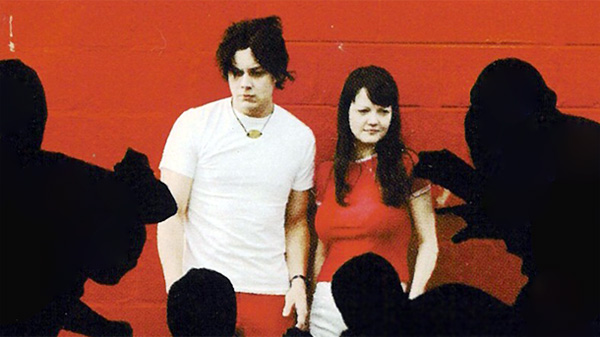Rapidshare The White Stripes White Blood Cells
Stream White Blood Cells by The White Stripes and tens of millions of other songs on all your devices with Amazon Music Unlimited. Exclusive discount for Prime members. The White Stripes; White Blood Cells. That's not a problem with White Blood Cells. In fact, the problem now is finding time for the next album to review.

• ' Released: November 10, 2001 • ' Released: April 23, 2002 • ' Released: August 2002 • ' Released: Late 2002 White Blood Cells is the third studio album by American duo, released on July 3, 2001. Recorded in less than one week at in,, and produced by frontman and guitarist, it was the band's final record released independently on. Bolstered by the hit single ', the record propelled The White Stripes into early commercial popularity and critical success. In 2012, ranked the album at number 497 on its list of. Contents • • • • • • • • • • • • • • • • • • Overview [ ] Continuing the stripped-down nature of the duo, White Blood Cells features less of the band's influences, instead displaying a more raw, basic, and primitive sound. The album's lyrical themes, which were written by White over a period of four years, touch on themes relating to love, hope, betrayal, and paranoia.
Following a on in 2002, the album became promoted throughout the music press, bringing the band critical acclaim. The White Stripes followed with a worldwide tour and the record peaked at number 61 on the, later being by the. The album's parodies the amount of increasing mainstream popularity the band was receiving, which depicts the duo attacked by photographers.
Praised for its simplicity and straightforward sound and instrumentation, White Blood Cells set the stage for The White Stripes to breakthrough into the mainstream and is often compared with influences. It helped define the band's sound and shape the band's role in the of the early 2000s. In recent years, the album has been, along with the band's follow-up (2003), featured on several music publications' lists of the greatest albums of the 2000s as well as all-time. Recording and production [ ] The band rehearsed for one week and began recording at, in, in February 2001. Meg White was initially hesitant to commence immediate recording, as she thought the songs were 'too new.' The album was recorded in less than four days, to try to keep it 'as unorganized as possible,' according to Jack. The record's quick production was intentional in order to get 'a real tense' feeling, as well as capture the band's energy.
The record was 'rushed' and a final day was saved for and the record; this was the first White Stripes album to be mastered in the studio. It was the first time for the band recording in a recording studio, and Jack White asked recording engineer Stuart Sikes more than once 'not to make it sound too good.' Packaging [ ] The of White Blood Cells depicts the duo getting both attacked and enamored by a clan of people wielding TV and video cameras.
The images poke fun at the music industry and promotion surrounding it. 'When does music become a business and why do we have to be suckered into it? Why do we have to buy a cell phone, you know what I mean?
A lot of that stuff upsets me. It gets annoying,' said Jack White. Najnowszy Patch Do Battlefield 1942. The album's title alludes to the increasing media attention the band was receiving, which would only increase after release.
'The name, White Blood Cells, for the album, is this idea of bacteria coming at us, or just foreign things coming at us, or media, or attention on the band,' Jack White explained in a 2001 interview. 'It just seems to us that there are so many bands from the same time or before we started that were playing and are still playing that didn't get this kind of attention that we're getting. Is the attention good or bad?
When you open the CD, it's a picture of us with these cameras. Wondering if it's good or bad.' Composition [ ] Lyrics [ ] The lyrics for the album were written over various points in the band's early career, including unrecorded songs for the duo's debut album (1999) and Jack White's previous band. Some material for White Blood Cells was also inspired by Jack White and the Bricks, a side-project formed in 1999. Regarding the four-year time span in writing for the record, Jack White said 'It was cool because a lot of things had been sitting around for a long time, stuff I had written on piano that had been just sitting around not doing anything. And it was good to put them all together at once, put them all in the same box and see what happened.' All material on the album is original, a contrast to numerous covers on the band's first two efforts.